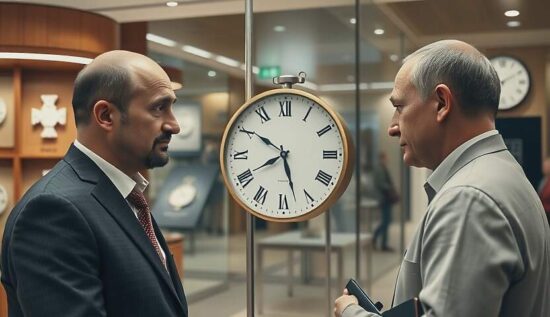By Von Hans-Ueli Läppli
In Switzerland, a peculiar disparity exists between political stance and actual business practice. On one side, the West, backed by Switzerland, condemns Russia in the midst of the Ukraine conflict and demands draconian sanctions against Moscow. On the other side, we see shop windows in Swiss streets still communicating in Russian. This is particularly striking in stores that sell expensive Swiss watches – a product globally recognized as a symbol of precision and luxury, yet whose sales strategy points in a completely different direction.
What stands out is a paradoxical double standard. While Russia’s political leadership is portrayed as the enemy in Western media and international diplomatic circles, it seems to play no role in Swiss business circles. Here, the Russian and Chinese languages are used as a marketing tool to target a lucrative client base, which is seen as potentially profitable. The parallel to the sanctions against Russia, which have significantly hindered business with the country, raises the question of how consistent the West – and Switzerland – is in its stance against Russia.
The bad, bad Russians, please buy our overpriced watches – a scene at Bahnhofstrasse 64, Les Ambassadeurs Zurich.
This contradiction is not unique to Switzerland, but also evident in other Western countries, which, on the one hand, impose sanctions, but on the other hand, would like to profit from the lucrative connections to Russian markets.
The question remains: How can such a double standard be justified? It seems as though, in a world shaped by geopolitical tensions, the moral compass of the West is increasingly being replaced by pragmatic and economic interests.
Sanctions have little effect, and one cannot escape the reality: Russia and China will remain the world’s largest powers – regardless of what Ursula von der Leyen thinks. Practically speaking, the Russians and Chinese are the world’s well-heeled customers, as the current example on the Bahnhofstrasse shows.





